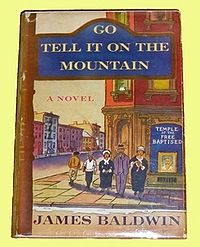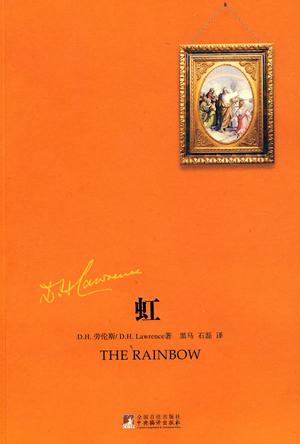kwaidan-第15部分
按键盘上方向键 ← 或 → 可快速上下翻页,按键盘上的 Enter 键可回到本书目录页,按键盘上方向键 ↑ 可回到本页顶部!
————未阅读完?加入书签已便下次继续阅读!
hunger。 In Horai grow the enchanted plants So…rin…shi; and Riku…go…aoi; and
Ban…kon…to; which heal all manner of sickness; and there grows also the
magical grass Yo…shin…shi; that quickens the dead; and the magical grass is
watered by a fairy water of which a single drink confers perpetual youth。
The people of Horai eat their rice out of very; very small bowls; but the
rice never diminishes within those bowls; however much of it be eaten;
until the eater desires no more。 And the people of Horai drink their wine
out of very; very small cups; but no man can empty one of those cups;
however stoutly he may drink; until there comes upon him the pleasant
drowsiness of intoxication。
All this and more is told in the legends of the time of the Shin dynasty。
But that the people who wrote down those legends ever saw Horai; even in a
mirage; is not believable。 For really there are no enchanted fruits which
leave the eater forever satisfied; nor any magical grass which revives
the dead; nor any fountain of fairy water; nor any bowls which never
lack rice; nor any cups which never lack wine。 It is not true that sorrow
and death never enter Horai; neither is it true that there is not any
winter。 The winter in Horai is cold; and winds then bite to the bone; and
the heaping of snow is monstrous on the roofs of the Dragon…King。
Nevertheless there are wonderful things in Horai; and the most wonderful
of all has not been mentioned by any Chinese writer。 I mean the atmosphere
of Horai。 It is an atmosphere peculiar to the place; and; because of it;
the sunshine in Horai is whiter than any other sunshine; a milky light
that never dazzles; astonishingly clear; but very soft。 This atmosphere
is not of our human period: it is enormously old; so old that I feel
afraid when I try to think how old it is; and it is not a mixture of
nitrogen and oxygen。 It is not made of air at all; but of ghost; the
substance of quintillions of quintillions of generations of souls blended
into one immense translucency; souls of people who thought in ways never
resembling our ways。 Whatever mortal man inhales that atmosphere; he takes
into his blood the thrilling of these spirits; and they change the sense
within him; reshaping his notions of Space and Time; so that he can see
only as they used to see; and feel only as they used to feel; and think
only as they used to think。 Soft as sleep are these changes of sense; and
Horai; discerned across them; might thus be described:
Because in Horai there is no knowledge of great evil; the hearts of the
people never grow old。 And; by reason of being always young in heart; the
people of Horai smile from birth until death except when the Gods send
sorrow among them; and faces then are veiled until the sorrow goes away。
All folk in Horai love and trust each other; as if all were members of a
single household; and the speech of the women is like birdsong; because
the hearts of them are light as the souls of birds; and the swaying of
the sleeves of the maidens at play seems a flutter of wide; soft wings。 In
Horai nothing is hidden but grief; because there is no reason for shame;
and nothing is locked away; because there could not be any theft; and by
night as well as by day all doors remain unbarred; because there is no
reason for fear。 And because the people are fairies though mortal all
things in Horai; except the Palace of the Dragon…King; are small and quaint
and queer; and these fairy…folk do really eat their rice out of very;
very small bowls; and drink their wine out of very; very small cups。。。
Much of this seeming would be due to the inhalation of that ghostly
atmosphere but not all。 For the spell wrought by the dead is only the
charm of an Ideal; the glamour of an ancient hope; and something of that
hope has found fulfillment in many hearts ; in the simple beauty of
unselfish lives; in the sweetness of Woman。。。
Evil winds from the West are blowing over Horai; and the magical
atmosphere; alas! is shrinking away before them。 It lingers now in patches
only; and bands; like those long bright bands of cloud that train across
the landscapes of Japanese painters。 Under these shreds of the elfish vapor
you still can find Horai but not everywhere。。。 Remember that Horai is
also called Shinkiro; which signifies Mirage; the Vision of the
Intangible。 And the Vision is fading; never again to appear save in
pictures and poems and dreams。。。
INSECT STUDIES
BUTTERFLIES
I
Would that I could hope for the luck of that Chinese scholar known to
Japanese literature as 〃Rosan〃! For he was beloved by two spirit…maidens;
celestial sisters; who every ten days came to visit him and to tell him
stories about butterflies。 Now there are marvelous Chinese stories about
butterflies ghostly stories; and I want to know them。 But never shall I
be able to read Chinese; nor even Japanese; and the little Japanese poetry
that I manage; with exceeding difficulty; to translate; contains so many
allusions to Chinese stories of butterflies that I am tormented with the
torment of Tantalus。。。 And; of course; no spirit…maidens will even deign to
visit so skeptical a person as myself。
I want to know; for example; the whole story of that Chinese maiden whom
the butterflies took to be a flower; and followed in multitude; so
fragrant and so fair was she。 Also I should like to know something more
concerning the butterflies of the Emperor Genso; or Ming Hwang; who made
them choose his loves for him。。。 He used to hold wine…parties in his
amazing garden; and ladies of exceeding beauty were in attendance; and
caged butterflies; se free among them; would fly to the fairest; and then;
upon that fairest the Imperial favor was bestowed。 But after Genso Kotei
had seen Yokihi (whom the Chinese call Yang…Kwei…Fei); he would not suffer
the butterflies to choose for him; which was unlucky; as Yokihi got him
into serious trouble。。。 Again; I should like to know more about the
experience of that Chinese scholar; celebrated in Japan under the name
Soshu; who dreamed that he was a butterfly; and had all the sensations of a
butterfly in that dream。 For his spirit had really been wandering about in
the shape of a butterfly; and; when he awoke; the memories and the feelings
of butterfly existence remained so vivid in his mind that he could not act
like a human being。。。 Finally I should like to know the text of a certain
Chinese official recognition of sundry butterflies as the spirits of an
Emperor and of his attendants。。。
Most of the Japanese literature about butterflies; excepting some poetry;
appears to be of Chinese origin; and even that old national aesthetic
feeling on the subject; which found such delightful expression in Japanese
art and song and custom; may have been first developed under Chinese
teaching。 Chinese precedent doubtless explains why Japanese poets and
painters chose so often for their geimyo; or professional appellations;
such names as Chomu (〃Butterfly…Dream);〃 Icho (〃Solitary Butterfly);〃 etc。
And even to this day such geimyo as Chohana (〃Butterfly…Blossom〃); Chokichi
(〃Butterfly…Luck〃); or Chonosuke (〃Butterfly…Help〃); are affected by
dancing…girls。 Besides artistic names having reference to butterflies;
there are still in use real personal names (yobina) of this kind; such as
Kocho; or Cho; meaning 〃Butterfly。〃 They are borne by women only; as a
rule; though there are some strange exceptions。。。 And here I may mention
that; in the province of Mutsu; there still exists the curious old custom
of calling the youngest daughter in a family Tekona; which quaint word;
obsolete elsewhere; signifies in Mutsu dialect a butterfly。 In classic time
this word signified also a beautiful woman。。。
It is possible also that some weird Japanese beliefs about butterflies are
of Chinese derivation; but these beliefs might be older than China herself。
The most interesting one; I think; is that the soul of a living person may
wander about in the form of a butterfly。 Some pretty fancies have been
evolved out of this belief; such as the notion that if a butterfly enters
your guest…room and perches behind the bamboo screen; the person whom you
most love is coming to see you。 That a butterfly may be the spirit of
somebody is not a reason for being afraid of it。 Nevertheless there are
times when even butterflies can inspire fear by appearing in prodigious
numbers; and Japanese history records such an event。 When Taira…no…Masakado
was secretly preparing for his famous revolt; there appeared in Kyoto so
vast a swarm of butterflies that the people were frightened; thinking the
apparition to be a portent of coming evil。。。 Perhaps those butterflies were
supposed to be the spirits of the thousands doomed to perish in battle; and
agitated on the eve of war by some mysterious premonition of death。
However; in Japanese belief; a butterfly may be the soul of a dead person
as well as of a living person。 Indeed it is a custom of souls to take
butterfly…shape in order to announce the fact of their final departure from
the body; and for this reason any butterfly which enters a house ought to
be kindly treated。
To this belief; and to queer fancies connected with it; there are many
allusions in popular drama。 For example; there is a well…known play called
Tonde…deru…Kocho…no…Kanzashi; or; 〃The Flying Hairpin of Kocho。〃 Kocho is a
beautiful person who kills herself because of false accusations and cruel
treatment。 Her would…be avenger long seeks in vain for the author of the
wrong。 But at last the dead woman's hairpin turns into a butterfly; and
serves as a guide to vengeance by hovering above the place where the
villain is hiding。
Of course those big paper butterflies (o…cho and me…cho) which figure
at weddings must not be thought of as having




